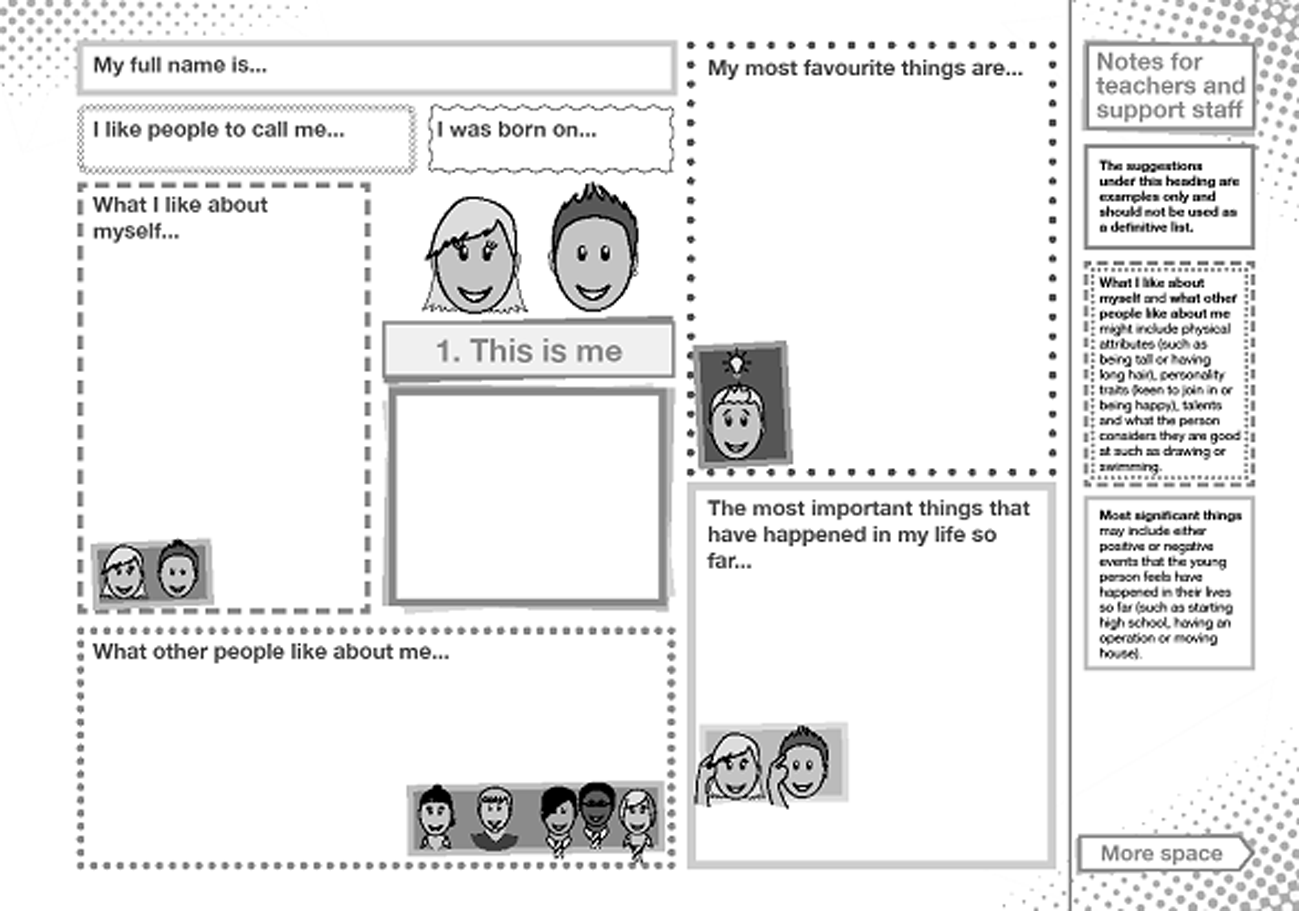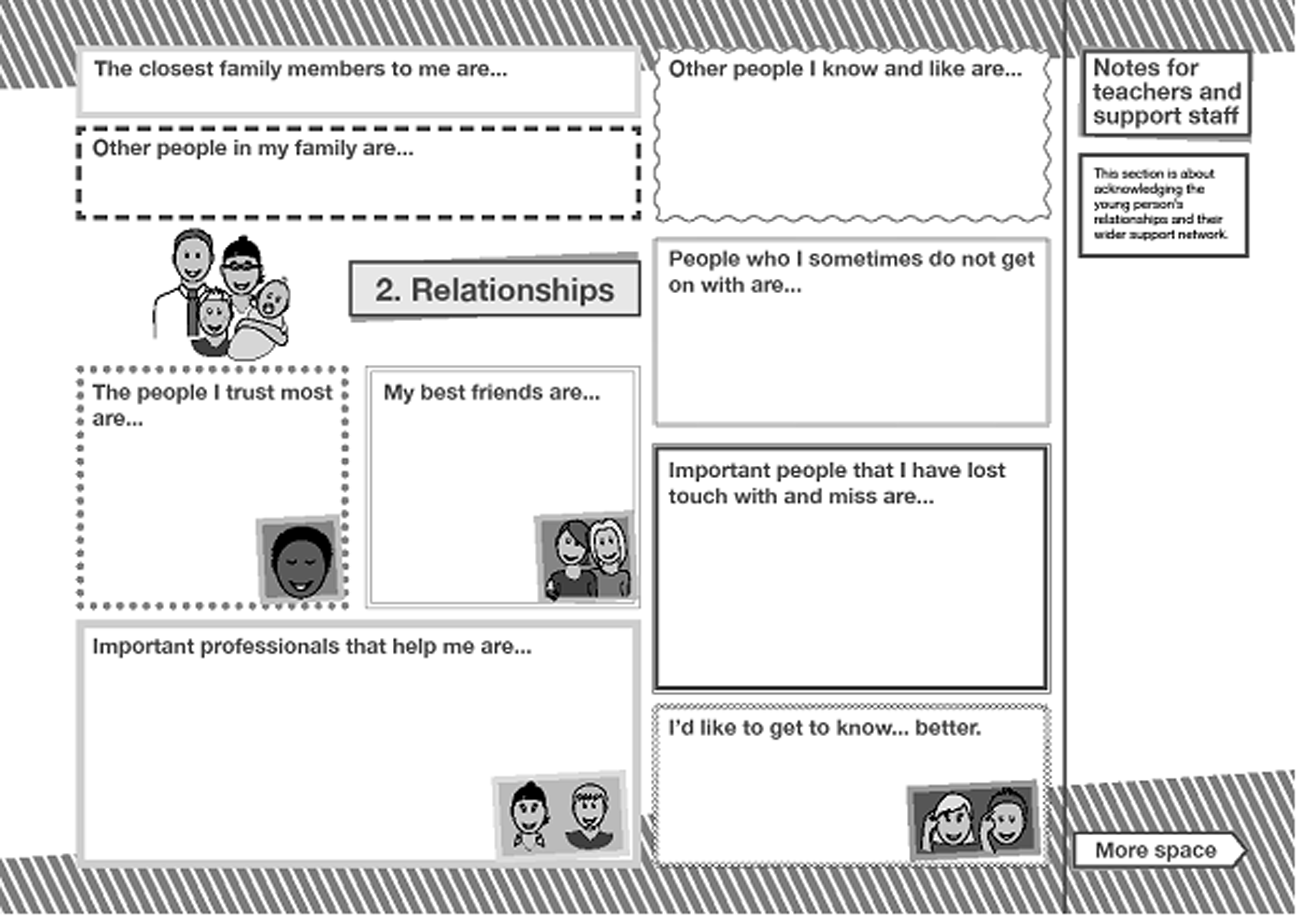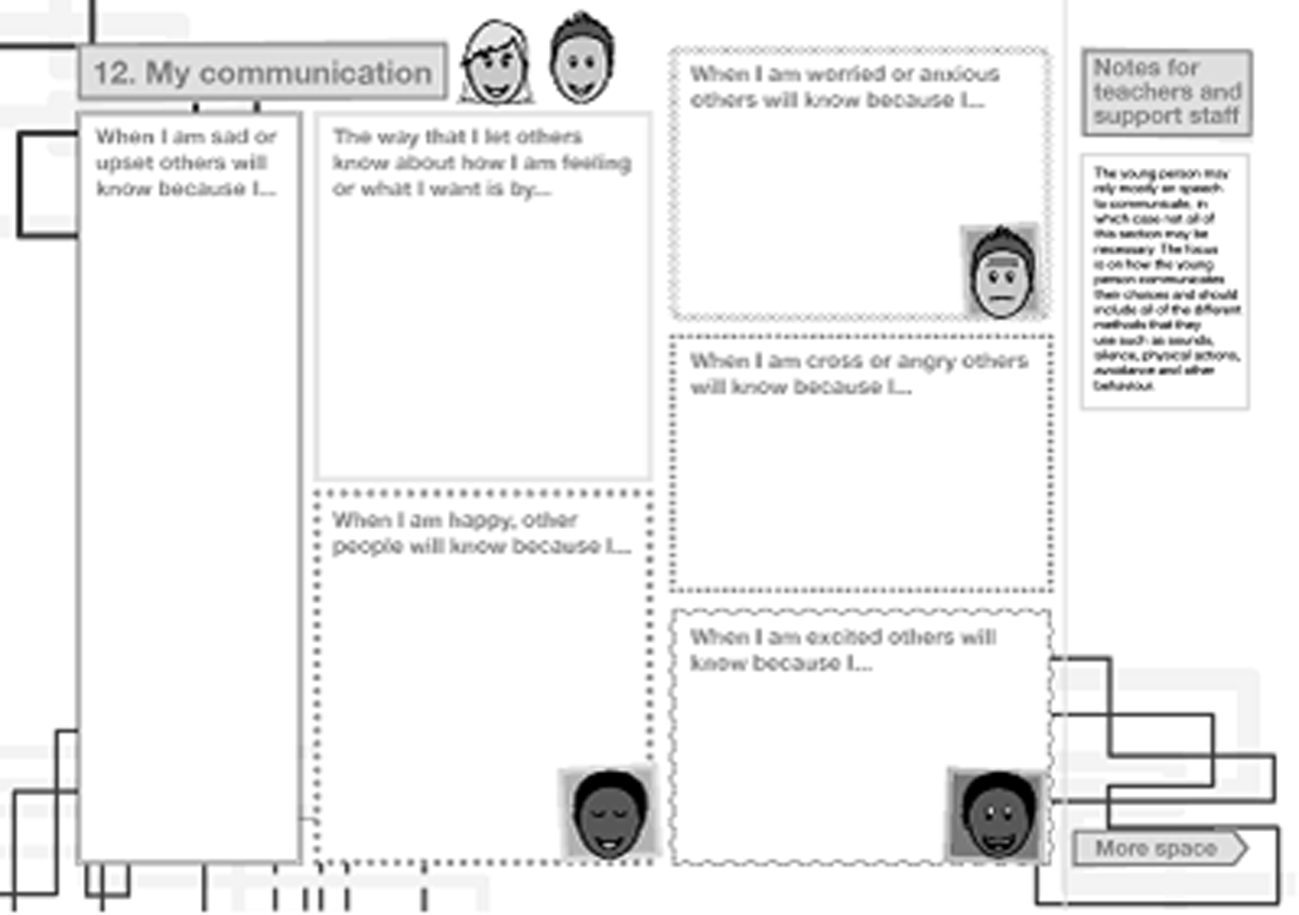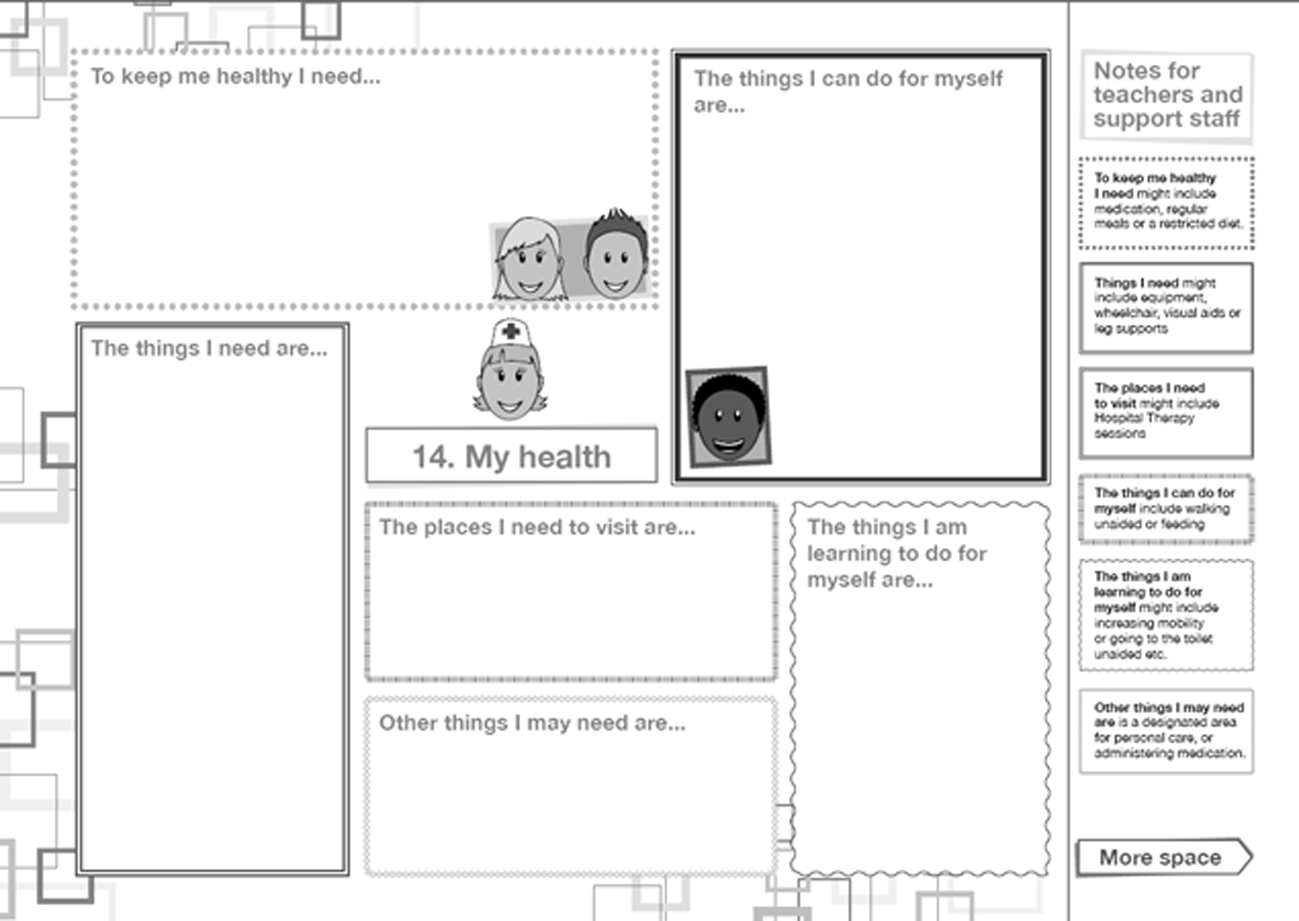Introduction [TOP]
It is well documented that transitions can be a source of significant anxiety, distress and overall challenge for people and more so in individuals with ASC. Transitions can mean micro or macro changes in their structured, predictable lives and their entrance to adulthood which is often characterized by limited opportunities (Transition Information Network, 2009). It is also well documented that people with ASC can find change very difficult and are often unable to visualize what life might be like in the future. Transitions are commonly associated with a time where young people move from being a young person to an adult and it is a time where those who receive support from children’s services may transfer to adult’s services as they reach 18 years of age. Transitions from children's to adult services can be extremely difficult for young people with ASC and are often associated with high levels of anxiety (National Autistic Society, 2013).
This paper aims to present a psychological understanding of micro and macro transitions by reviewing some of the key literature and understanding of why challenges associated with transitions are often experienced as distressing and traumatic. Additionally, it presents some practical examples of support adopted with individuals with ASC which can lead to more successful positive outcomes and engaging transitions.
Micro and Macro Transitions [TOP]
A recent article by Rydzewska (2012) highlights through a literature review of current understanding of transition experiences aspects of its conceptualization, service provision and general support in an ever changing society. Gidden (1991) has argued that uncertainties are experienced subjectively and that individuals are more and more accountable for their future where the only factor which is certain is that everything is deemed to change (as cited in Rydzewska, 2012).
George (1993) refers to two key concepts in the study of life course perspectives: Transitions and Trajectories. Transitions embedded in Trajectories are characterized by changes in status that are time bound, although it is noted that transitions often have long-term consequences. Trajectories are considered long-term patterns of change and stability, which include multiple transitions and give them personal meanings and forms. There are many different types of micro and macro transitions but they all imply in some ways a shift from state ‘A’ to state ‘B’. This shift includes changes in terms of structure building phases, but also and more importantly a psychological change. It is important to analyze the continuum between discrete states, such as adaptation or adjustment (Levinson, 1986). In order to provide meaningful support through the phases of any transition experience, equal weight needs to be given to both the structure building periods and the structure changing periods. These are referred to as those situations the individual is at and moving towards, as well as the intermediate stages of change. The development of an awareness and understanding of the psychological impact of transitions needs to take place in order to provide meaningful support to young people with ASC so that they may understand where they are coming from and where they are going to; this involves a perilous passage through potentially a ‘nowhere land’ as defined by Bridges (1980). This potential empty space is significant in terms of reflection, understanding and recognition between the ‘old’ and the ‘new’. This also resonates with Ebaugh’s (1988) ‘liminality’ which becomes a central space between the old situation and the new one.
Role-Transitions [TOP]
A role-transition involves a role-loss, which generally precedes a re-consideration of one’s behavioural, psychological and social make-up. During role-transition, the individual might lack a self-defining connection such that the role identity of an individual becomes ambiguous. Ashforth (2001) argues that liminality exists when there is a lack of identification in the given role of a specific social domain or, when having had a specific role, the individual lacks the skill to de-identify from it, fostering an absence of a self-defining connection in that given social domain. After a role-transition, the expectations and the values that the individual places on the relevant social domain influences the way liminality is experienced. Social understanding, social communication and social interactions are known areas of challenges associated with ASC and therefore an even greater understanding of the social and psychological impact ought to be part of an assessment and evaluation of transitions with these individuals.
Ashforth (2001) suggests that there are four psychological motives that are aroused by the process of a role-transition: the search for identity, meaning, control and belonging.
Identity is the process of learning to locate one-self whilst maintaining the integrity between self and behaviour, attaining a positive sense of self through differentiation and keeping a sense of self-growth which are all essential elements for the formation of identity.
Meaning is the sense making process that we ascribe to ourselves and the context in which we happen to be part of. This sense making process through transitions is even more significant for people with ASC who often refer and understand their social world in concrete, visual and often literal ways.
Control becomes the very experience of the self, a sense of agency – empowerment – where to have control over one’s environment and over one’s actions creates a sense of involvement and responsibility (Ashforth, 2001). Perception of control can be considered here as a psychological process during the transition process and also as a fundamental element of the individual’s psychological make-up during the coping stage of the transition. Whether an individual perceives being in control (or not) as often is the case for individuals with ASC will determine whether the transition process will be experienced as positive and exciting (or not).
Belonging strictly interlinked to the previous three motives – identity, meaning, control - is expressed as the need to maintain a certain amount of positive and significant interpersonal interactions. This can be very significant to the individual with ASC and often significant to the circle of people around the individual which can include family members, extended family, siblings, friends, professionals and carers. If the role and social domain remains highly valued, individuals may encounter a sense of disorientation (loss of identity), meaninglessness, a lack of control and a lack of belonging. These have all being identified as risk factors associated with developing depression (Ashforth, 2001). The four key motives described by Ashforth offer an understanding of some of the challenges experienced throughout transitions which may be significant for individual with ASC. The potential psychological impact of transitions can be experienced as significantly more challenging by individuals with ASC. Some reports even suggest that transitions can also be experienced as a challenge by families and carers alike suggesting that strategies and advice should be provided to them as well (Beytien, 2009).
This paper aims to offer a better understanding of why some of these challenges are experienced and their associated psychological motives. By understanding these motives, we aim to better support young people with ASC in the design and delivery of appropriate and meaningful transition programs. This will be partly achieved by ensuring that individuals are themselves part of this process of change, so that they are ultimately better equipped to cope with the transition experience.
Supporting Transitions With People on ASC [TOP]
Transitions can be a significant challenge to individuals with ASC whether these are experienced at an early stage of their lives or when they have already made an entrance to adulthood. This paper presents some practical examples of transition methodologies and an approach adapted into daily practice within an educational environment. It illustrates how specific key resources tailored to individual needs can be adopted at different stages of transitions.
Transition experiences are for the most part multifaceted and are experienced subjectively. As transitions and changes become the norm as opposed to the exception, it will be important to ensure that targeted support is provided for each individual. In order to present positive examples of how transition experiences can be supported with people with ASC, a presentation of individual examples are discussed as follows:
-
Transition experiences: Role Entry
-
Transition experiences: Coping with Change
-
Transition experiences: Role Exits
The objective is to ensure that transition experiences are not addressed as one single event (or one change), but are experienced and presented through different stages of transitions: a process of change rather than an event in time. This will support discussion of the four previously discussed psychological motives put forth by Ashforth (2001) – identity, meaning, control and belonging, thus practical examples can be provided within this context.
The participant group with whom these practices were adopted was aged between 10 and 19 years old. The resources were applied over a period of one year for key transitions at 10, 15 and 19 years of age as follow: age 10 years old – transition from Primary to Secondary education, age 15 years old – transition from Secondary to Sixth Form college, and age 18-19 years old – transition to adulthood.
1. Transition Experiences: Role Entry [TOP]
As individuals with ASC move from Primary to Secondary provisions (and similarly when entering their primary educational life) they will experience significant transitions that will include a change of environments, a change of known and established routines and a change in support staff as well as a circle of significant others. In order to support these transitions, the individual needs to be prepared and in some cases supported in leaving behind what has been significant and meaningful to them, to then enter what often would be considered as the ‘unknown’. Understanding the individual profile of each person by identifying likes, dislikes, ways of communicating, ways of approaching and interacting with others as well as gradually building familiarity with the new physical environment, are going to be the key elements for positive and successful transition experiences.
Figure 1 illustrates a framework which can be conceptualized in the form of a personal passport or personal transition booklet or personal identity card that can accompany the individual when entering his/her new role and environment. With this information gathered at the point of role-transition entry, issues of potential loss of identity, issues of lack of meaning – why am I moving and where am I going – potential issues of a sense of control, and sense of belonging (or lack of it) can be gradually addressed by encouraging the individual’s full participation in this process of knowledge acquisition as well as promoting participation from their families/carers throughout.
2. Transition Experiences: Coping With Change [TOP]
The transition experience which follows the point of role entry engages the individual in a process of initial adaptation and to a certain extent of adopting coping mechanisms that have been necessary when having to come to terms with potential loss of identity, control, meaning and belonging. As the individual with ASC gradually familiarizes with the new structure, micro transition experiences will continue to be part of the challenges presented by school, college, home and community at large. Throughout their educational life, the coping mechanisms and coping skills (tolerance skills) are considered to be crucial in preparing, supporting and empowering individuals to face other changes and transitions in their lives, current and future.
Lazarus and Folkman (1984) suggest two types of coping mechanisms: problem focus skills and emotion focus skills. The former looking at how the external situation can be modified and/or manipulated and the latter by addressing the internal emotional responses to the stresses/anxieties related to the change. Coping with change can be addressed for example by introducing a small 'unexpected' change within a well-structured timetable, either on a daily or weekly basis. This aims to introduce an element of novelty and ‘surprise’ (change) without too significant interruptions to daily routines. The change becomes embedded in a structure which can be better coped with as part of a predicable timetable. As an individual builds on their coping and tolerance skills, small changes can be translated in bigger and more significant changes which with the right level of support and now built in coping skills, the individual is able to better manage and cope with.
Transition booklets (see Figures A2, A3, A4, and A5) below demonstrate some examples of what can be prepared well ahead of future transitions. The information that we ought to capture is the individual’s relationships, current school timetable and learning, hobbies and leisure, future dreams – what the individual wants/wishes to achieve in the future, current housing accommodation, work skills (strengths), communication skills, emotional literacy, general health, and current overall educational review (if in education). Within the emotional skills the individuals ought to be supported in identifying how they are feeling about the change, how they respond if sad or upset, how they respond when others are sad or angry. Within their communication skills staff may want to include examples already used with the individual, such as symbols, photographs, Social StoriesTM (Gray, 2013).
3. Transition Experiences: Role Exits [TOP]
The next significant transition experience is the stage when the individual prepares for the final role exit into adulthood. With macro transition experiences where the outcomes have been positive and successful, there is still a certain level of debate on how to actually reliably measure success of these transitions (Rydzewska, 2012). A transition can be described as positive when planning and preparation as well as historical and current knowledge sharing about the individual has thoroughly taken place, including the individual’s full participation throughout this process, as it has been suggested by the Transition Information Network (2009). The network has suggested five principles of good practice as follow:
-
Full participation of young people and their families
-
Comprehensive multi-agency engagement
-
Provision of high-quality information
-
Effective transition planning
-
An array of opportunities for living life
With this stage of transition experiences (but not exclusively) motives of choice and control discussed by Ashforth (2001), become significant elements of the transition process. Individual involvement, opportunities for the individual to express choices and preferences, opportunities to 'build' your own future, are critical in addressing some of the psychological impact of these transitions. This is where again transition booklets can be used and modified to the individual needs, as well as opportunities for planned visits to future identified placements and provisions which can be offered and supported by people that know the individual. A personal passport and/or a pen picture which supports the individual into the next stage of their adult life can also be adopted at this stage. A comprehensive multi-agency involvement will also be significant; this will include a provision of high-quality information and full participation of the client and their families (Transition Information Network, 2009).
In order to address different levels of functioning with individuals with autism, opportunities for the use of photos, personal or collaborative drawings, writing, use of information technology devices (iPad, Tablets, Talking devices) or anything else that supports participation in the decision making process ought to be encouraged and supported. This can be provided through individual and group sessions led by key workers or staff who have built, over time, a positive relationship with the individual. Sessions can also be provided throughout the school curriculum and opportunities for discussion at annual reviews where multiagency involvement is the key. Exploring opportunities in identifying Transition Champions for individuals on the ASC has also been one of the drive initiatives of the National Autistic Society (2013). Transition champions would be supporting families and individuals throughout the maze of new opportunities, options and choices as well as providing an advocacy service for those individuals who may need extra support entering this stage of their transitions.
Conclusion [TOP]
The aim of this paper was to present a discussion within the context of transition experiences for individuals on the ASC. It discussed and further explored the psychological impact of transition experiences. Changes are part of our current way of living where the only certainty is that everything can and will change. Patton and Ryan (2000) talk about portfolio careers in the work place and perhaps parallels ought to be considered with ‘portfolio personalized futures’. Person centered approaches and personalized agendas are indeed the current thinking behind support provided to individuals with ASC and associated learning difficulties. The aim should therefore be in trying to better understand transition experiences of young people with ASC, so as to provide and continue to further develop individual support packages and personalized service provisions. Additionally, this paper presented some practical examples on where and how transition experiences can be identified and where support ought to be provided. Within the four psychological motives identified by Ashforth (2001) which can characterize any transition experience, some examples were presented and discussed. As changes and transitions become more and more part of our societies, further research is needed in looking at how transition experiences impact the quality of life of individuals with ASC and how a better understanding of these experiences can lead to more positive and fulfilling ways of managing and supporting individuals throughout the process of change.
Rather than 'destination unknown', as suggested in the title paper by Rydzewska (2012), we should seek to enhance the transition experiences that represent positive and refreshing as well as empowering different stages of life. New challenges would then be embraced as exciting opportunities rather than be experienced as perilous passages. This is a challenge that will continue to look into potentially innovative, well thought out, creative and systematic ways of supporting and empowering individuals with ASC. This is also where further research would be worth exploring including quality of service provision, longitudinal outcomes of transitions and perhaps additional investigations of its potential challenges. By further consistently addressing transition experiences and processes throughout, rather than when having reached 18 years of age, people with ASC can be better prepared and equipped to fully participate in life transitions.

 This is an open access article distributed under the terms of the Creative Commons
Attribution License (
This is an open access article distributed under the terms of the Creative Commons
Attribution License (





